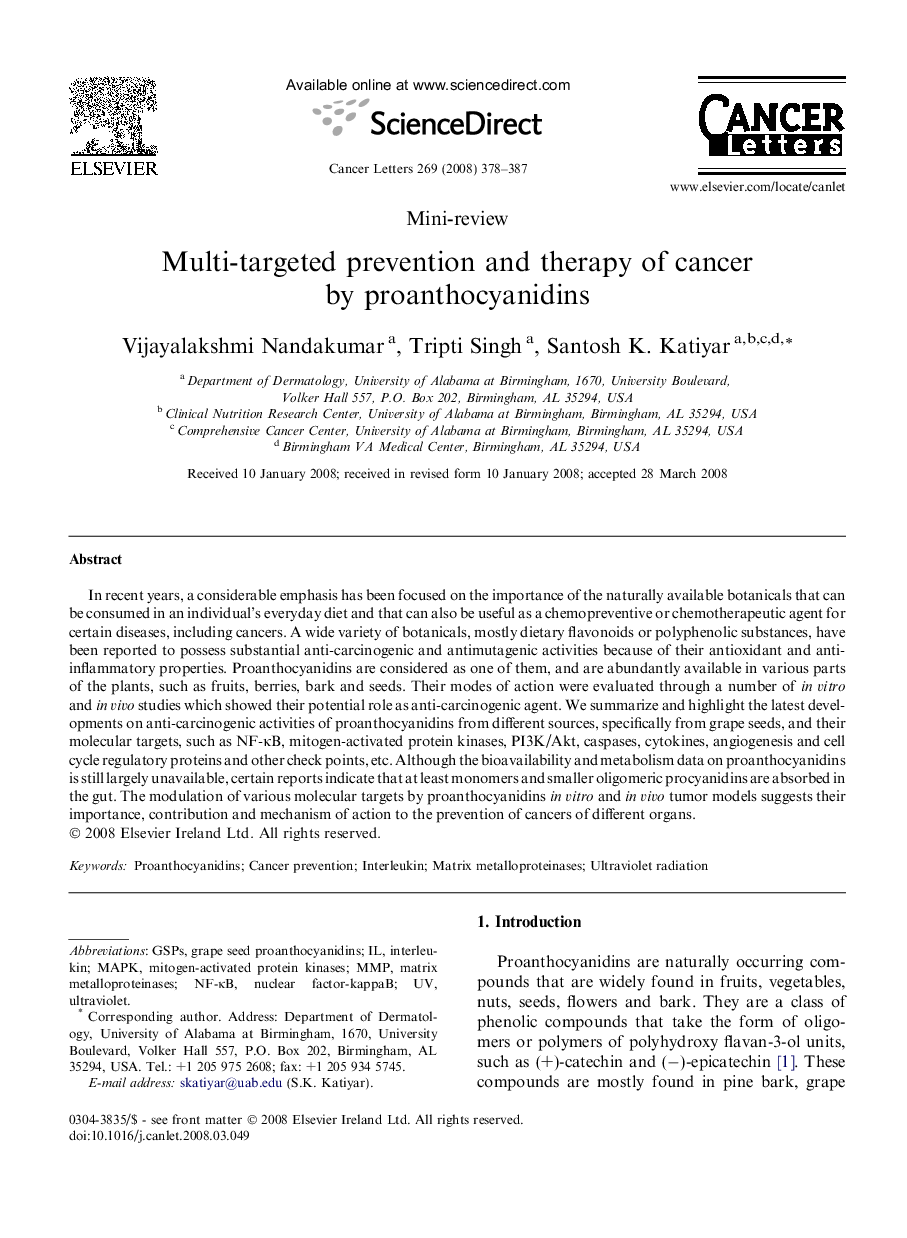| Article ID | Journal | Published Year | Pages | File Type |
|---|---|---|---|---|
| 2114825 | Cancer Letters | 2008 | 10 Pages |
In recent years, a considerable emphasis has been focused on the importance of the naturally available botanicals that can be consumed in an individual’s everyday diet and that can also be useful as a chemopreventive or chemotherapeutic agent for certain diseases, including cancers. A wide variety of botanicals, mostly dietary flavonoids or polyphenolic substances, have been reported to possess substantial anti-carcinogenic and antimutagenic activities because of their antioxidant and anti-inflammatory properties. Proanthocyanidins are considered as one of them, and are abundantly available in various parts of the plants, such as fruits, berries, bark and seeds. Their modes of action were evaluated through a number of in vitro and in vivo studies which showed their potential role as anti-carcinogenic agent. We summarize and highlight the latest developments on anti-carcinogenic activities of proanthocyanidins from different sources, specifically from grape seeds, and their molecular targets, such as NF-κB, mitogen-activated protein kinases, PI3K/Akt, caspases, cytokines, angiogenesis and cell cycle regulatory proteins and other check points, etc. Although the bioavailability and metabolism data on proanthocyanidins is still largely unavailable, certain reports indicate that at least monomers and smaller oligomeric procyanidins are absorbed in the gut. The modulation of various molecular targets by proanthocyanidins in vitro and in vivo tumor models suggests their importance, contribution and mechanism of action to the prevention of cancers of different organs.
